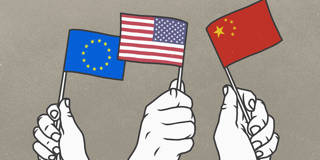OnPoint Subscriber Exclusive
Longer Reads provide in-depth analysis of the ideas and forces shaping politics, economics, international affairs, and more.

What Europe Must Do
Europeans have long known that the global balance of power is shifting rapidly to Asia, and America's attention with it. With the transatlantic alliance only barely surviving Donald Trump’s presidency, this may be the last chance to repurpose it for the twenty-first century.
BERLIN – The first months of US President Joe Biden’s administration have raised Europe’s hopes tremendously – but perhaps too much. For all of our shared values, the United States and Europe each has its own interests and perspectives, and these can sometimes take us in opposite directions. If the transatlantic alliance is to be revived, following its near-death at the hands of Donald Trump, such divergences will need to be accepted and managed. The alliance must make its core interests far more coherent, and its outlook must become more global and comprehensive.